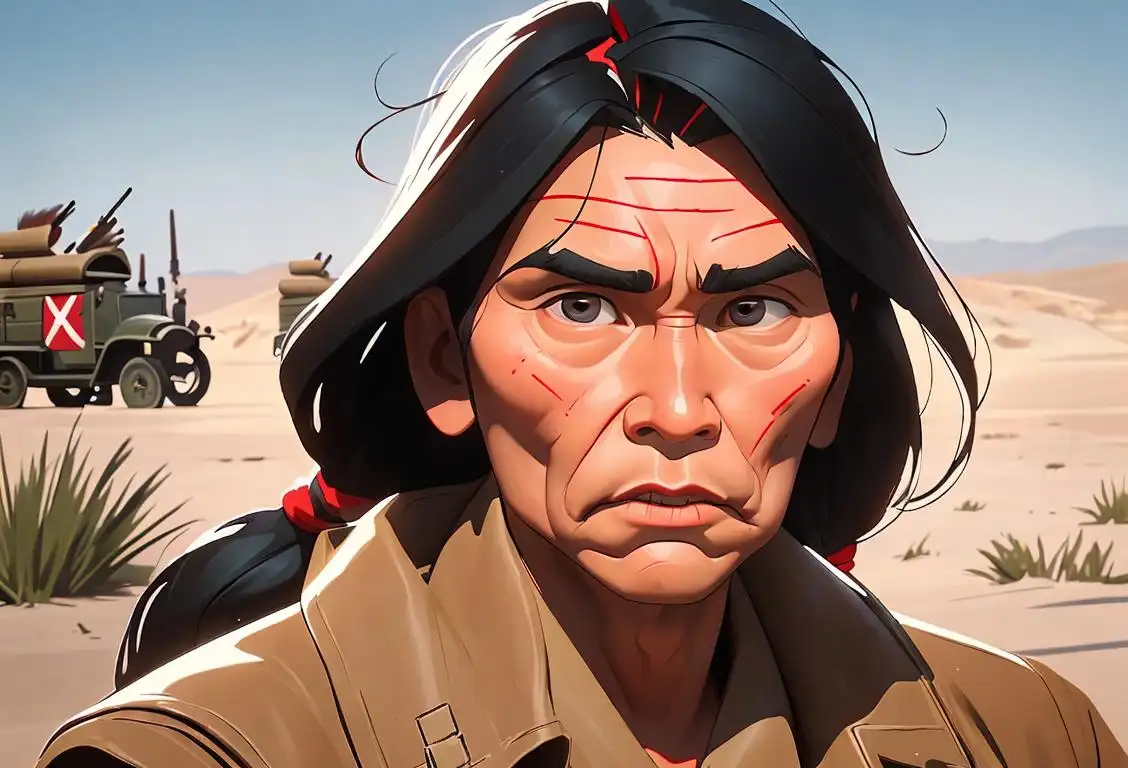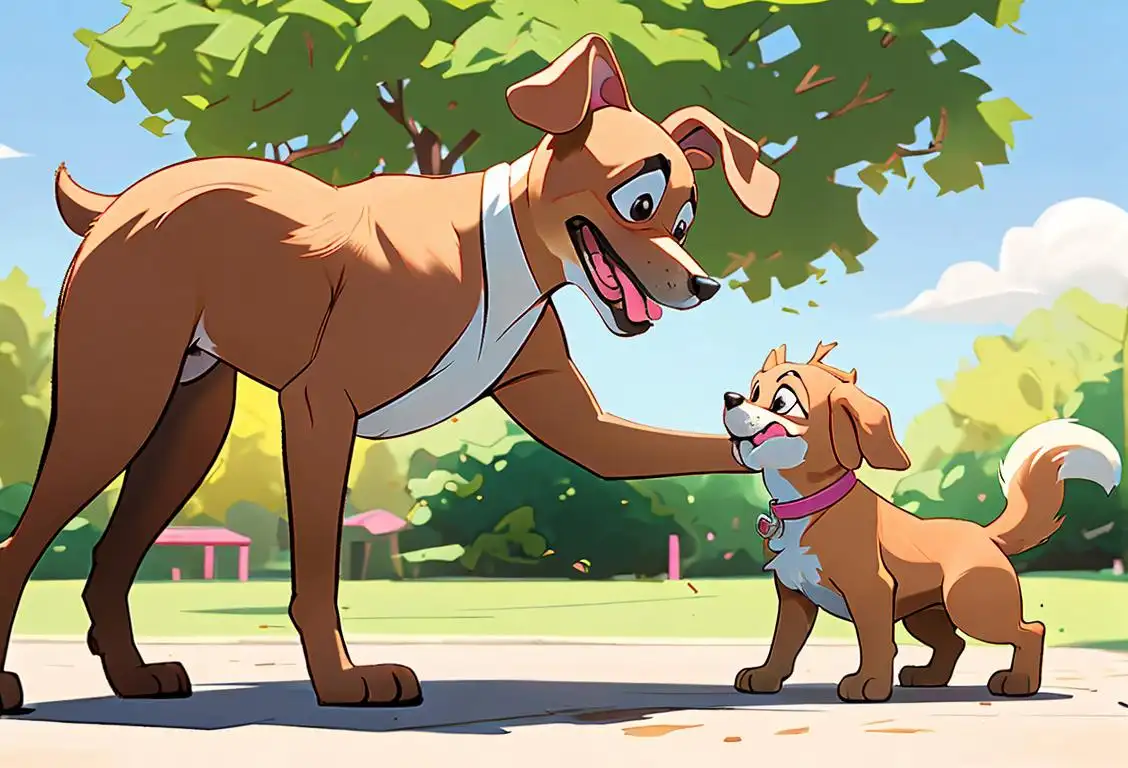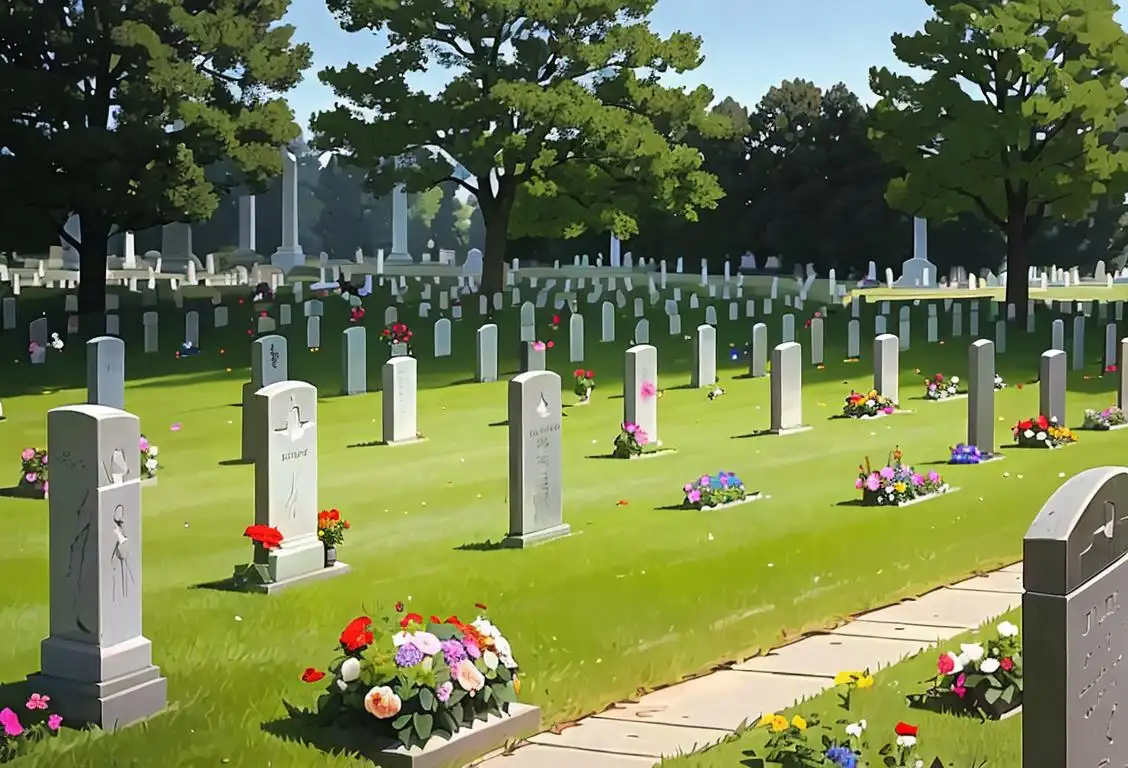National Code Talker Day

Are you ready to decode some history? It's National Code Talker Day, a day to honor the brave Native American soldiers who served as code talkers during World War I and II. These amazing individuals used their native languages to communicate secret military messages and played a crucial role in protecting our country. So, buckle up and get ready to learn all about the fascinating internet and actual national history of this special day!
When is Code Talker Day?
It's national code talker day on the 14th August.
The Heroic Code Talkers of World War I and II
During both World War I and II, Native American code talkers used their tribal languages to transmit and receive encrypted messages that the enemy couldn't decipher. This ingenious method of communication proved to be virtually unbreakable, as few people outside the tribes were familiar with these languages.
The code talkers were recruited from various tribes, including the Navajo, Choctaw, Comanche, and Hopi, among others. Their involvement in the war effort helped turn the tide of battle and save countless lives.
The Internet History of National Code Talker Day
National Code Talker Day was officially designated on August 14, 1982, by President Ronald Reagan. This date marks the day when the Navajo code talkers were first recognized by the U.S. government for their contributions during World War II.
Since then, National Code Talker Day has been celebrated annually to honor all Native American code talkers who played a vital role in protecting our nation's security.
A Day to Remember and Pay Tribute
On National Code Talker Day, we pay tribute to the courage and sacrifice of these brave warriors. It's a time to remember their remarkable contributions and express our gratitude for their service.
Many events and ceremonies are held across the country on this day. These include parades, educational programs, cultural exhibitions, and speeches by veterans and community leaders.
Did You Know?
Did you know that the Navajo code talkers created an alphabet that used words from their native language to represent letters of the English alphabet? For example, they used the Navajo word 'wol-la-chee' to represent the letter 'A'. This made it incredibly challenging for the enemy to crack their code!
History behind the term 'Code Talker'
1917
Choctaw Code Talkers
During World War I, Choctaw soldiers from the 36th Division were utilized as code talkers. The Choctaw language was used to transmit important messages between American forces, ensuring secure and effective communication on the battlefield.
1942
Origins in World War II
In 1942, during World War II, the term 'code talker' first came into existence. Native American soldiers from various tribes were recruited by the United States military to serve as radio operators, using their Native languages to transmit vital military messages. This code language based on their native languages proved to be incredibly difficult for enemies to decode, giving the United States a significant advantage on the battlefield.
1918
Origins of Native American Codetalkers
During World War I, a group of Choctaw soldiers from Oklahoma were called upon to use their native language as a means of encrypted communication. This marked the first known instance of using Native American languages for code talking purposes.
1918
Creation of the Code Talker concept
During World War I, the United States military sought a way to securely transmit sensitive information that could not be deciphered by the enemy. Inspired by the use of Native American languages for communication among tribes, a group of Choctaw soldiers became the first Code Talkers. They used their native language to transmit messages, providing a code that the enemy could not understand.
1918
Creation of the Code Talker concept
During World War I, a group of Choctaw soldiers from Oklahoma used their Native American language to transmit secret messages on the battlefield. This initial use of Native American languages as a code formed the foundation for the term 'code talker'. The Choctaw Code Talkers contributed to the successful execution of military operations and demonstrated the effectiveness of using indigenous languages as codes.
1918
Native American soldiers join WWI
Native American soldiers, particularly from various tribes like the Choctaw, Creek, and Cherokee, enlist in the United States military during World War I. Their language skills and knowledge of their native tongue become valuable assets on the battlefield.
1942
Navajo Code Talkers in World War II
As World War II erupted, the United States needed a more secure and unbreakable communication system. The U.S. Marine Corps turned to the Navajo Nation and recruited Navajo speakers to develop a secret code based on their language. The Navajo Code Talkers utilized complex linguistic characteristics of their native tongue, including unwritten tonal qualities and the abundance of hard-to-translate words. This code proved extremely successful in the Pacific theater, confounding Japanese codebreakers.
1940
Creation of the Navajo Code Talkers
In the midst of World War II, the United States Marine Corps sought a more secure and efficient way of encoding military communications. Recognizing the potential of Native American languages, they turned to the Navajo Nation. The Marine Corps began recruiting and training Navajo men to create a code based on their complex language.
1940s
Navajo Code Talkers
In the early 1940s, the United States Marine Corps recruited Navajo speakers, later known as Navajo Code Talkers. The Navajo language proved to be an excellent secret code, as it was complex and virtually unknown outside the Navajo Nation. The code talkers played a crucial role in the Pacific theater of World War II, using their language to transmit messages that the enemy was unable to decipher.
1942
Formal establishment of Code Talker programs
With the outbreak of World War II, the United States recognized the value of Native American languages as a means of secure communication. The Marine Corps established the first official Code Talker program, recruiting members from the Navajo Nation. These Navajo Code Talkers underwent extensive training, learning a code based on their native language to transmit critical military messages.
1943
Navajo Code Talkers
The most well-known group of code talkers were the Navajo Code Talkers, from the Navajo Nation. In 1943, the U.S. Marine Corps established a special program specifically for Navajo speakers. The Navajo language, complex and unwritten at the time, provided an ideal basis for a secret code. The Navajo Code Talkers played a crucial role in major Pacific campaigns, transmitting sensitive information that helped secure victory for the Allied forces.
1918
Creation of a Native American code
The United States military recognizes the potential for using Native American languages as a code that the enemy cannot decipher. Soldiers from the Choctaw tribe are the first to develop and implement a code based on their language to relay messages.
1944
Expansion to other Native American tribes
Recognizing the effectiveness of the code talkers, the military expanded the program to include soldiers from other Native American tribes. Lakota, Comanche, Choctaw, Hopi, and many other tribal languages were employed extensively in coded communications. These Native American soldiers were highly skilled in their respective languages and were essential in maintaining secure communications, delivering messages that could not be understood by enemy intelligence.
1943
Expansion of Code Talker program
Inspired by the Navajo Code Talkers' achievements, the U.S. military expanded the program by recruiting speakers of other Native American languages such as Comanche, Meskwaki, Seminole, and more. These new Code Talkers utilized their native languages to transmit vital operational information securely. The Code Talkers played a crucial role in various military campaigns, including the Battle of Iwo Jima, where their code remained unbroken throughout the conflict.
1952
Recognition of the Code Talkers' Contributions
In 1952, the United States Congress passed a law that recognized the contributions of Native American code talkers. The law awarded the original 29 Navajo Code Talkers, as well as other tribes who served as code talkers during World War II.
WWII Period (1939-1945)
Expansion of code talkers
With the outbreak of World War II, the United States military expands the use of Native American code talkers. Various tribes, including Navajo, Comanche, Hopi, and Lakota Sioux, join the effort to develop and utilize their unique languages as codes.
1942-1945
Code Talkers in action
Code Talkers played a vital role in various military operations throughout World War II. They participated in major battles and campaigns, including the Pacific Theater. The Navajo Code proved extremely effective, and enemy forces were unable to decipher the messages. The Code Talkers' contributions significantly contributed to the Allied victory.
1942
The Unbreakable Navajo Code
By 1942, the Navajo code had been fully developed, utilizing a system that substituted English words with Navajo equivalents. It was incredibly secure because Navajo was an unwritten language, and few non-Navajo individuals could understand it. The code was never broken by the enemy throughout World War II.
2000
Recognition and honoring of Code Talkers
In the year 2000, the United States government awarded the Congressional Gold Medal to the original Navajo Code Talkers in recognition of their invaluable service during World War II. This honor acknowledged their significant contributions and raised awareness of the Code Talker concept, ensuring their place in history as unsung heroes.
1982
Recognition and Congressional Medals
Decades after their service, the contributions of code talkers were finally acknowledged. In 1982, the U.S. Congress passed a resolution declaring August 14th as National Code Talkers Day. This day was designated to honor the bravery, skills, and sacrifices of Native American code talkers during World Wars I and II. Furthermore, in 2001, President George W. Bush awarded Congressional Gold Medals to the original 29 Navajo code talkers, ensuring their heroism and legacy would never be forgotten.
1945
Recognition and Legacy
The contributions of the Navajo Code Talkers remained classified until the end of World War II. In 1945, the Navajo Code Talkers were finally recognized and celebrated for their invaluable service to the nation. Their efforts played a significant role in the success of various military operations, including the Battle of Iwo Jima.
1982
Recognition and appreciation
After decades of classified operations, the Code Talkers' contributions were declassified in 1968, allowing their stories to be shared. In 1982, the U.S. Congress officially recognized the significant contributions of the Native American Code Talkers and declared August 14th as National Navajo Code Talkers Day. This recognition shed light on the Code Talkers' impact during wartime and fostered appreciation for their cultural and linguistic expertise.
1942
Navajo code talkers enlisted
The United States Marine Corps specifically recruits Navajo men to serve as code talkers. Due to the complexity and rarity of the Navajo language, it becomes one of the primary codes used during the war. The code proves to be highly secure, as the enemy is unable to understand or decipher it.
2000
National Code Talkers Day
On August 14, 2000, President Bill Clinton designated August 14th as National Code Talkers Day. This day is dedicated to honoring the Native American code talkers and their invaluable contributions during wartime.
1945
Recognition of code talker contribution
The significant contributions of code talkers are recognized by the United States government. The Navajo code talkers, in particular, receive praise for their vital role in maintaining secure communications during the war.
2008
Congressional Gold Medal
In 2008, the United States Congress awarded the Congressional Gold Medal to the original 29 Navajo Code Talkers. This prestigious honor recognized their bravery, ingenuity, and the critical role they played in securing victory during World War II.
1982
Code talkers honored
President Ronald Reagan designates August 14th as National Code Talkers Day to honor and recognize the Native American code talkers' contributions. This day serves as a way to commemorate their unique role in military history.
Did you know?
Did you know that the Navajo code talkers created an alphabet that used words from their native language to represent letters of the English alphabet? For example, they used the Navajo word 'wol-la-chee' to represent the letter 'A'. This made it incredibly challenging for the enemy to crack their code!Tagged
awareness remembranceFirst identified
16th August 2015Most mentioned on
14th August 2019Total mentions
61Other days
Remembrance Day
Camera Day
Law Enforcement Day
Hiv Testing Day
Medal Of Honor Day
Rescue Dog Day
Cemetery For Memorial Day
Former Prisoner Of War Recognition Day
Foundation Day
Prisoners Of War Remembrance Day









